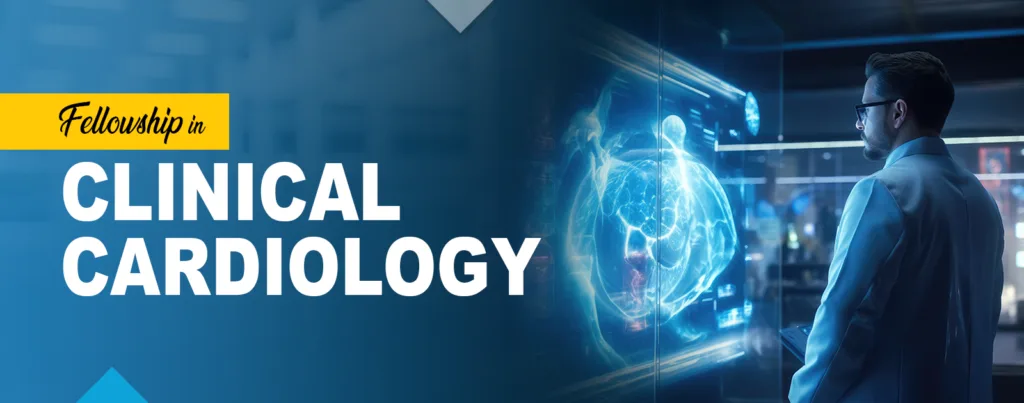
Cardiology is a vital and continually evolving field of medicine that focuses on diagnosing, treating, and preventing heart diseases. Cardiovascular disorders are major global health issues, causing a significant amount of illness and death.
Despite advancements in technology and therapeutics, the impact of ischemic heart disease, heart failure, arrhythmias, and other heart conditions continues to increase, primarily due to longer life expectancies and lifestyle-related health risks. This growing need highlights the importance of having well-trained specialists who have both clinical skills and procedural knowledge.
For medical professionals who are seeking to specialise in this field, a clinical fellowship program is an ideal step. It connects general medical training to advanced practice. Additionally, it equips medical professionals with the skills, perspectives, and confidence necessary to deliver comprehensive cardiac care in various settings.
A fellowship in clinical cardiology is more than just an academic step. It reshapes a medical professional's career. The fellowship program aims to build expertise in diagnosing and managing complex cardiovascular conditions while also encouraging leadership, research skills, and teamwork.
A fellowship provides structured exposure to various aspects of cardiovascular medicine, including prevention, diagnosis, treatment, and long-term patient care.
It enables participants to work at the intersection of advanced technology, innovative drug treatments, and patient-centred care. In addition to skill development, it promotes personal growth, building confidence in making important clinical decisions and compassion in supporting patients and families through serious health challenges.
The curriculum of a clinical cardiology fellowship is carefully designed to encompass a range of training aspects. These cover clinical exposure, development of procedural skills, academic research, and teamwork.
Completing a fellowship in clinical cardiology opens up various and fulfilling career paths. Participants upon completion can pursue academic medicine, participating in teaching, research, and clinical work at university-affiliated institutions. Others may choose to work in hospitals, focusing on direct patient care in specialised cardiac centres or regional hospitals.
Private practice is another option, often combining clinical care with preventive strategies and patient education. Subspecialised cardiologists may work in fields such as electrophysiology, structural heart interventions, or transplant services. The fellowship also prepares physicians for leadership roles in healthcare systems, policy organisations, and international cardiovascular groups.
The global demand for cardiovascular specialists presents numerous opportunities in various regions. In many cases, cardiologists also contribute to community health initiatives, addressing public health risks and enhancing preventive measures.
While technical skills are important, the fellowship in clinical cardiology offers much more than just clinical and academic training. It builds resilience, adaptability, and leadership in high-pressure situations.
Participants face complex clinical scenarios that require not only medical knowledge but also ethical decision-making, practical communication skills, and compassion.
Working with patients and their families clarifies that cardiovascular care is not just about treating illness. It is also about improving the quality of life and building trust. This human aspect of medicine enriches the medical professional journey, reinforcing the values of empathy, patience, and responsibility.
Additionally, the fellowship encourages self-reflection and the development of professional identity. Participants can become independent practitioners who can balance evidence-based care with the personalised health needs of the patients. These qualities contribute to both job satisfaction and personal fulfilment, leaving a lasting impact that goes beyond the hospital environment.
Hence, a Fellowship in Clinical Cardiology, either after MBBS or for practising physicians, provides an excellent opportunity to gain exposure to a discipline of medicine and develop clinical competence, which helps deliver optimal patient outcomes and advance in the ladder of professional success.
© Copyrights Medicoll All rights reserved.